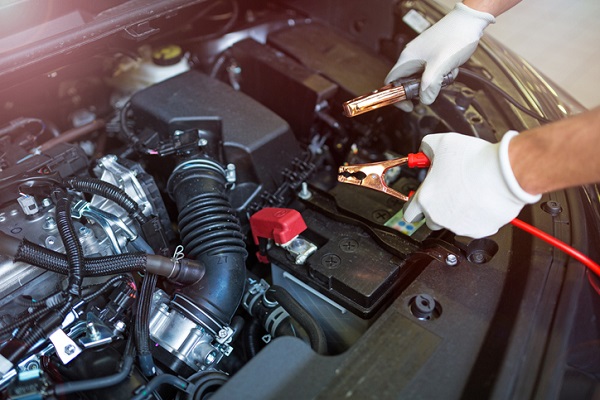
When a car’s battery dies suddenly, it can cause unexpected problems. Without a working battery, a car cannot generate the power to move, start, or really do anything else other than remain where it is.
It can be difficult to know exactly when a car battery may die—it may have persistent problems starting or holding a charge, or it may drain completely overnight. Whatever the reason, a well-trained auto mechanic can use their inside knowledge to locate the source of the problem and find a working solution.
If you’re interested in getting involved in a career in the automotive industry, read on to find out some of the more common signs that a car battery may need to be replaced.
1. Students in Auto Mechanic Training Are Familiar with Slow Engine Crank
Most drivers have been there before—when we turn the key in the ignition, we hear the dreaded sound as the engine turns over before it finally starts. This is known as a slow engine crank, and while it may not mean a car’s battery is dead quite yet, it’s one of the most common indicators that it will soon need to be replaced.
Auto mechanics use a tool called an ammeter to check a battery’s voltage. If you check a battery and the reading is low—typically under 12 volts—you may want to suggest that your customer change to a new battery unless they prefer to break out the jumper cables every time they want to start their car.
2. Auto Mechanics Know to Check for Low Battery Fluid
Many cars—with the exception of some hybrid vehicles or those with specialized aftermarket parts—run on what’s known as a ‘wet-cell’ battery. These batteries contain a liquid solution of lead electrolyte, sulfuric acid, and water.
Sometimes, particularly in extreme temperatures, the electrolyte in a battery can evaporate. In the same way a car can’t run without gas, the battery can’t generate power without electrolyte. If you want to become a mechanic, it’s important to remember that the fluid levels of a battery are often visible through its casing, and if it falls below the end of the battery’s lead plates, it’s time for a top up.
3. Watch Out for the Warning Signs of Car Battery Corrosion
As mentioned previously, many cars operate by using a wet-cell battery. They contain sulfuric acid, which is a highly corrosive material that can eat away at the battery posts. This means that the smell of sulfur—similar to rotting eggs—is one sign you might be working with a leaking battery.
An overheating, overcharging, or a damaged battery cell can all cause a battery to leak. If you don’t smell sulfur, sometimes a leak may spread through popped caps onto a battery’s terminals, creating visible corrosion marks. Auto mechanic courses can teach you the finer points of how electrical fundamentals affect a car’s overall health, as well as how to safely work on components.
4. A Car’s Battery Might Be Empty Due to a Parasitic Drain
The battery is the main source of power to a car’s engine, as well as other components such as the wipers, radio, power locks, and air conditioning. Some of these components may continue to draw power from the battery even if the car is turned off, creating what’s known as a parasitic drain.
A parasitic drain occurs when a battery experiences an abnormal, consistent discharge of power, which causes the battery to die over a period of time, or even overnight. If a car battery is relatively new and needs constant jumpstarts just to get going, it might be affected by a parasitic drain.
5. Students in Auto Mechanic Courses Know the Simplest Reason May Be Old Age
The life cycle of a battery can vary depending on both the manufacturer and the owner’s particular driving habits, but it typically lasts between three to five years. This means that the older the battery, the greater the chance it may die unexpectedly.
In order to avoid a sudden demise, it’s a good idea to remind customers to have their battery checked regularly. Many batteries have a label which indicates the month and year it was purchased, and if it is around four or more years old, it may be time for a replacement.
Are you near the Cambridge area and think you might be right for mechanic training?
Contact Automotive Training Centres for more information.

